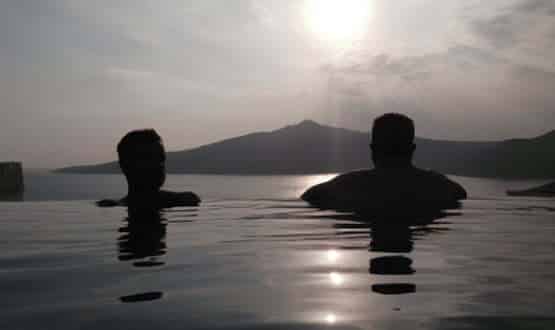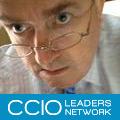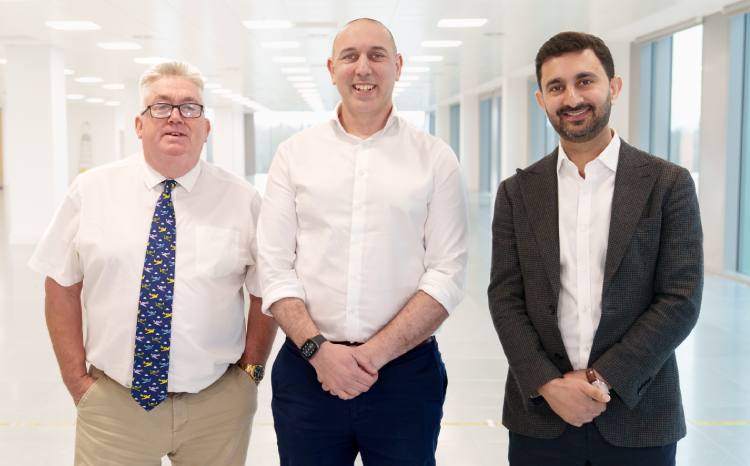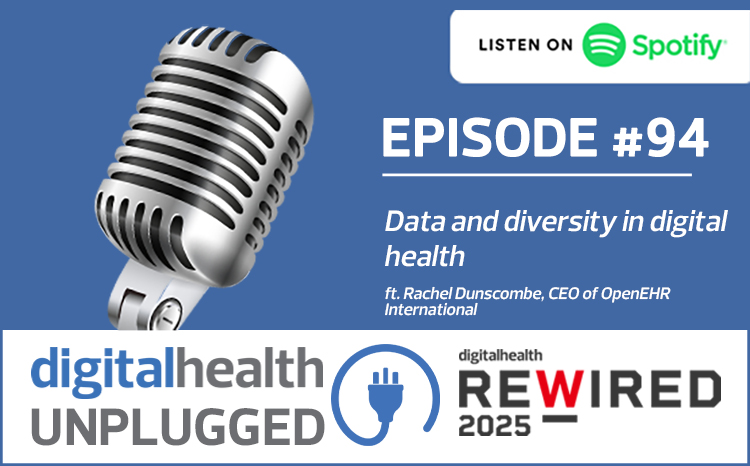Joe’s view: open EHR
- 11 September 2014

High above the Turkish resort of Kalkan, we sweltered. It was 45 degrees in the shade.
Towards sunset, my eldest son, Fin, and I took refuge from the relentless heat in the infinity pool that seemed to join us with the Med; which shimmered silver in the dying light beyond.
Regular readers will recall that I am often in Turkey at this time of year. Fifteen or so years ago we took our first family holiday there.
We wanted to go with two other families but not to share a house (our two year old was going through a bitey phase). So we searched the internet (google was yet to become a verb) for “three villas pool turkey” and got one hit; a property in a small fishing village called Dalyan.
Carpet is more expensive than land
At the time, we liked to go on holiday with other families with small children so that child care could be shared and pool watching could be organised from first light until the children were all in bed.
However, a holiday with small children can turn into an exercise in childcare in a dangerous environment.
To avoid cabin fever and lifeguard fatigue, we organised excursions to local sights including, on this occasion, a carpet making cooperative.
Turkish carpets are rightly famous for their craftsmanship and quality, but I was still shocked by the price and declined to buy one (despite much free tea and charm from the vendors).
I escaped to my recently acquired favourite restaurant and had a beer with Murat, the manager. “You don’t want buy carpet” said Murat “you want buy land. Land cheaper than carpet.” Light bulb moment.
Half an hour later, I’m looking in the window of a recently opened estate agent. I find that Murat is telling the truth; land is cheaper than carpet.
This investment seems a no-brainer. We are having such a good time that I’m likely to come back year after year, wasting a fortune on renting property.
At the same time, I‘m broke (I have three kids under 7!). Discussing the idea at home, my wife Fiona and I decide that if we can rent out a villa then owning one could “wash its own face”.
But how do you rent out a villa in Turkey? We decide that we would need one of those new-fangled websites, so that we don’t have to pay a letting agent.
Bong bong, tweep
We spent long winter evenings dialing up teach-yourself-web-design sites from our kitchen (remember zzzzzzzzzfizzfizzdingdingbeeeeeeep?).
We bought a domain and to share costs and risk with friends built two villas over the winter instead of one.
We bought a web design software package called Microsoft FrontPage for what seemed the exorbitant cost of £400.
FrontPage was an early ‘What You See Is What You Get’ (WYSIWYG) web design tool that enabled any damn fool to build a website from scratch.
We followed the templates and plugged in the widgets to assemble a site that could be published from our kitchen.
The following summer, we showed Murat our website and asked him to put our business card in his menu so we could get people to rent the villas and begin to recoup our costs.
Within days, we were contacted by a Turkish man who asked if his villa could have a page on the website. “Sure,” said Fiona. Pay me 10% of any rental income the website brings you and you have a deal.”
He looked unsure. “10% of nothing is nothing” she said, inventing her killer sales pitch on the spot. “Tammam (OK)” he smiled.
Within a few months, my wife had grown the business into full time job, running Dalyan Villas Limited and managing a website with more than 700 properties on it, paying 10% of rental for each booking.
We sold the business a few years ago, but by then we had roped-in Fin to do the web design work because of the size of the workload.
He retained an interest in WYSIWYG web design, recently graduated as a design engineer, and is now starting a masters in computer science.
In the pool at Kalkan he told me: “You should see the latest WSYIWYG web design suites, Dad. They’re given away free or near free with domain sales and hosting packages.
“You can do anything with them; embed video, run surveys, accept credit cards, the lot. What you need is a WYSIWYG electronic patient record.” The penny dropped.
That’s what they were talking about…
This is what Tony, Ian, Ewan, Bill and the rest of the open source gang have been talking about. I get it, I think. Bits of software (archetypes) that can be popped together like Lego to make whatever you want in your EPR locally.
A beautifully simple idea. However , short of the human race evolving into some sort of socialist Utopia how would such a thing be funded or governed?
If an enterprise cannot fund itself, it will ultimately fail. I had loved the idea of open source because the spirit of medicine is open source.
But I had worried that the open source movement was potentially like the peace and love movement of the sixties; highly desirable but ungovernable and unfunded.
That was until I included in my holiday reading Ewan Davis’ must-read blog “Farewell to Ruthless Standardisation” .
In it, he envisages a self regulating community like Wikipedia, but one in which there are still opportunities for system suppliers to make a buck and professional bodies to provide guidance.
Maybe was the heat (or the raki) but standing in the pool next to an optimistic, 21 year-old computer science undergraduate student, it all suddenly seemed to make sense. We might really do this.
Time to become a social movement
I went on holiday slightly deflated after a meeting with a very senior figure in healthcare. I was trying to persuade him to back the CCIO campaign, but I caught him on a bad day and got sent away with a flea in my ear.
In the process, one thing he said really stung me: “Anyone can sign up to a campaign. You need to be more than a campaign. What you need to be is a social movement.”
He was right. If we are to deliver the best EPRs and the best care in the world, the health IT community does need to become a social movement and we need come together around a shared vision.
Can we? Or are we too tribal? How can our CCIO Leaders Network and the recently established Health CIO network help?
Is openEHR that vision? Visiting its website, I was able to subscribe to mailing lists, but I wasn’t able to impulse buy a personal membership or contribute to fighting funds.
Wikipedia is supposed to run with 35 employees, so maybe Jimmy Wales could be persuaded to advise on finance. Famously, Wikipedia never misses an opportunity to raise money.
All we need to do is get the funding right, establish an end-user-led design and clinical content community, and include opportunities for system suppliers to profit and for professional bodies to contribute standards respectively.
As usual, it’s the sociology and group psychology that is the challenge – rather than the technology.
OpenEHR may have already put down the right foundations. Can we build on them?


Joe McDonald
Joe McDonald is a practising NHS consultant psychiatrist. Over the past five years he has been an NHS trust medical director and national clinical lead for IT at NHS Connecting for Health – a stint that included 18 months as medical director of the Lorenzo delivery team!
His experiences in the National Programme for IT in the NHS have left him with a passion for usability and "end user knowledge networks.” He is the founding chairman of the National Mental Health Informatics Network. Motto: we don't get fooled again. Follow him on twitter @CompareSoftware
The CCIO Leaders Network will once again be holding its annual conference at EHI Live 2014. The event, on Tuesday, 4 November, will focus on information sharing across organisations and across health and social care. Registration is free for all and open now.





